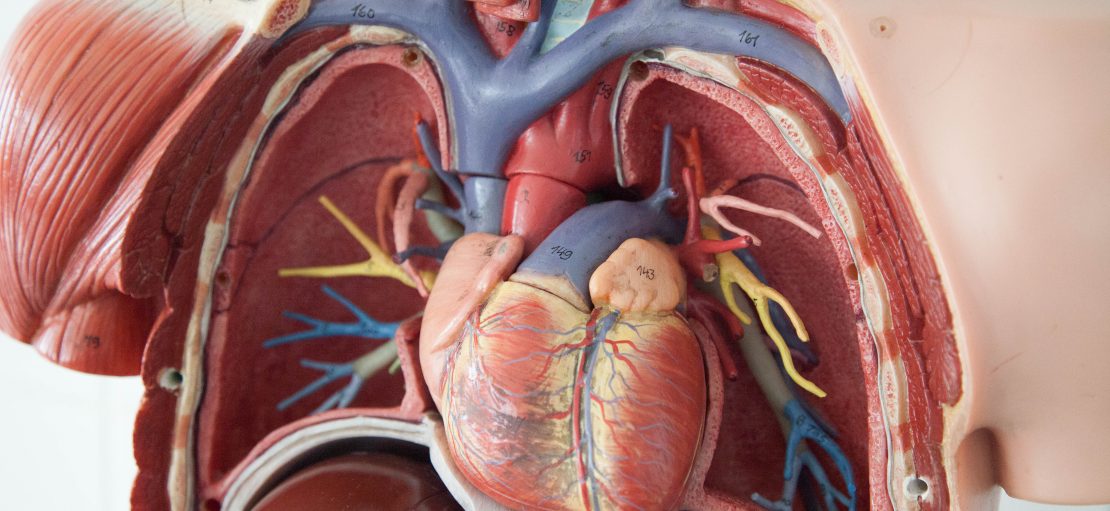
The Cardiovascular Board met virtually on November 2, 2021 to discuss recent and upcoming changes at ABIM, as well as many other important issues facing the discipline.
Meeting guests included:
- Savitri Fedson, MD, Chair of the ABIM Cardiovascular Board Advanced Heart Failure and Transplant Cardiology Exam Committee
- Mario Garcia, MD, Chair of the ABIM Cardiovascular Board Cardiovascular Disease Exam Committee
- Robert O. Roswell, MD, ABIM Director
- Joyce Donnellan, Division Vice President for Education, American College of Cardiology (ACC)
- Timothy Gregory, Chief Learning Officer, Heart Rhythm Society (HRS)
- Pamela Magnani, Associate Vice President Education, HRS
Below is a summary of the key takeaways from the meeting:
Leadership Update
Richard J. Baron, MD, ABIM President and CEO, joined the Cardiovascular Board to provide members with recent updates, including:
- Reflecting on the spring 2021 Internal Medicine Summit, and how ABIM and specialty societies could collaborate to advance diversity, equity and inclusion (DEI) efforts across internal medicine. He noted that 30 years of research show how structural racism has impacted health outcomes, and ABIM believes that part of remaining current in medical knowledge includes physicians being cognizant of that literature and incorporating it into practice. As such, ABIM will begin collecting data on race and ethnicity and will research how to incorporate questions about DEI on assessments.
- Dr. Yuli Kim, MD, asked what ABIM does from a broader public perspective and wondered whether ABIM has an obligation to be a more visible, vocal opponent to some of the inequities in health care in the US. Dr. Baron shared how the organization advocates, educates and is actively looking for collaborations to advance its DEI work with society partners. He emphasized that ABIM has some unique challenges and opportunities as an assessment and credentialing organization, and is considering how to best move forward to promote health equity within those parameters. He shared the example of ABIM looking into ways to incorporate health equity questions into assessments, which could have a bigger impact than many realize. Once health equity questions are added to the exam blueprints, it signals it is something important physicians need to know and it changes what they focus their studies on.
- Sharing reactions to a joint statement issued by ABIM, the American Board of Family Medicine (ABFM), and the American Board of Pediatrics (ABP) cautioning physicians that disseminating misinformation on COVID-19 is contrary to ethical and professional practice. Dr. Baron said the reaction was overwhelmingly positive with many thanking ABIM for making the statement. He noted there were a few people who saw this as infringement on freedom of speech and chilling the conversation between physicians and patients. He said he found that disconcerting, because ABIM and the medical community should ground decisions and statements in science and evidence, with COVID-19 vaccination widely accepted as safe and effective.
- Previewing the Longitudinal Knowledge Assessment (LKA), which launched in January 2022 in 12 specialties, including cardiovascular disease. Dr. Baron noted that beginning in 2022, physicians will have the opportunity to pay less for Maintenance of Certification (MOC) over time if they enroll in the LKA, even if they hold multiple certificates, because the LKA is included in the annual MOC program fee.
Diversity, Equity and Inclusion: Progress Report
Pamela Browner White, Senior Vice President of Communications and Chief Diversity, Equity and Inclusion Officer; Lorna Lynn, MD, Vice President for Medical Education Research and the Staff Administrator for the Board of Director’s Committee on Diversity, Equity and Inclusion; and Weifeng Weng, PhD, Director of Research Analysis, updated the Cardiovascular Board on ABIM’s progress in advancing DEI and becoming an actively anti-racist organization.
Ms. Browner White noted that she has been Chief Equity, Diversity and Inclusion Officer for a little more than a year at the time of the meeting, and encouraged Specialty Board members to visit the year in review post on the ABIM blog.
She noted that the organization is beginning with race and ethnicity data to understand the makeup of ABIM diplomates but the committee understands that diversity is much broader than that.
She also reminded the Specialty Board of ABIM and ABIM Foundation’s Racial Justice statement: “It’s not simply enough to say passively we will do no harm; we pledge actively to do our part in opposing and dismantling systems and policies that cause harm to our patients and disproportionately affect those in Black and Brown communities.”
She said much of the work has been guided by this statement, and updated members in a number of areas ABIM is making progress.
Dr. Lynn and Dr. Weng then provided an overview of race and ethnicity data for the overall internal medicine diplomate population, including cardiologists. Dr. Lynn noted that while the current reports rely on external data, in the future, ABIM will ask diplomates to self-identify with regards to their gender, race and ethnicity.
To this end, ABIM will collaborate with society partners and others to decide on what identifiers will be used. It will also be important to be clear as to why we will begin to collect this information; it’s all about assuring that our programs are fair, and that we make sure a broad range of voices are included in our discussions.
Cardiovascular Board members shared their reactions to these data and their ideas for how ABIM can best move this work forward, as well as their personal experiences working within their own institutions.
There was some discussion about how the category “Asian” is too broad. ABIM Director Robert Roswell, MD, noted that ABIM is currently working to delineate the data further into South and East Asian to get a better understanding of that cohort. He also shared that the data shows 45% of diplomates in cardiology are coming from international medical schools, and up to this point ABIM has focused primarily on US diplomates and initiatives. Dr. Roswell believes a bigger conversation is needed that encompasses a broader group of diplomates. There was a general agreement that there is a pipeline issue where students of color need to be reached earlier in their education, such as middle school, so that they could begin thinking about a career in medicine. There was also conversation about how graduate medical educators can be made aware of the data so they can understand the importance of recruiting students of color.
As ABIM continues this work it will keep the community informed on its progress. More information can be found in a special section of our blog entitled ABIM’s Commitment to Health Equity.
Standard Setting Approval Adult Congenital Heart Disease Initial Certification
A new standard was approved for the Adult Congenital Heart Disease Certification Examination. Kelli Treadwell, PhD, ABIM Manager of Psychometric Operations, presented a summary of ABIM’s standard setting process and discussed how an exam passing score is determined. The standard setting process considers both content and policy evidence. In order to gather content evidence, a representative group of 33 content experts participated in one of three standard setting panels. The panelists included exam committee members, program directors, and high-performing, at-large ABIM diplomates who spend at least 50% of their time in direct patient care. Panelists participated in about six hours of training on the Angoff method, the most popular and best researched standard setting method in the credentialing field. Each panelist reviewed the questions on the exam, evaluated the difficulty of each, and estimated how likely a borderline examinee would be to answer each item correctly. Each panel rated 160 items and at least two panels rated all 200 items on the exam. The content recommendation from the three panels was presented to the Specialty Board to consider in conjunction with policy evidence before adopting the final standard for the Adult Congenital Heart Disease Certification Examination.
Longitudinal Knowledge Assessment (LKATM) Update
Alison Carey, Senior Director of Engagement and Digital Experience, gave the Specialty Board a preview of the Longitudinal Knowledge Assessment (LKA) Platform and updated them about how ABIM has engaged physicians throughout the development process to ensure it will meet their needs and provide a good user experience.
The engagement work included establishing a Physician Advisory Panel of 10 board certified physicians, who met on a monthly basis to share feedback on a variety of areas, such as the LKA assessment platform, communications materials, and other program design elements.
The Panel’s insights were enhanced through regular user-testing sessions, additional physician interviews, surveys and feedback gleaned from diplomate phone calls and emails. In addition, in August 2021, 26 physicians volunteered to serve as beta testers for the LKA platform to help identify bugs and any user experience issues; their feedback resulted in important improvements to the assessment platform prior to launch.
All of this physician feedback also helped generate a comprehensive LKA Physician Journey, outlining physician opportunities and challenges. Some of the top challenges were discussed during the meeting to help prepare members in case colleagues approach them with questions.
For example, one challenge identified was that enrolling and participating at the beginning of a physician’s assessment due year is a departure from how many diplomates engage with MOC, and may not be intuitive. To address this challenge, ABIM will communicate clearly through multiple channels, including emails, social media, its website and more to ensure physicians are informed about this new process.
Cardiovascular Board members wondered about the level of support diplomates will have if they are less tech-savvy, or need help understanding how the program works. Richard G. Battaglia, MD, ABIM Chief Medical Officer, mentioned that many medical specialty societies are holding town halls about the LKA, and members of ABIM Governance are engaging different communities to help provide more details. ABIM has also created a dedicated website at www.abim.org/LKA, produced a preview video, and the LKA has a demo physicians can try themselves once they’ve signed up. Diplomates can also contact ABIM directly for support at 1.800.441.ABIM or request@abim.org.
ABIM plans to continue engaging with the community beyond the LKA launch and make improvements based upon physician feedback. All ABIM Board Certified physicians are encouraged to join the Community Insights Network where they may receive occasional requests to share their thoughts about various ABIM programs or topics.
Enrollment for the 2022 LKA opened December 1, 2021 for 12 disciplines, including cardiovascular disease. The first set of questions were delivered January 4, 2022 and the quarter ends March 31, 2022. Physicians can still enroll, and doing so early ensures they will have enough time to access and answer questions for that quarter. The LKA differs from the traditional, 10-year MOC exam in that it better melds assessment and learning by providing regular feedback along the way that physicians can use to identify and address knowledge gaps. As a longitudinal assessment it’s scored differently too, allowing physicians to demonstrate improvement as they continue to answer questions over the 5-year cycle.
Learn more about the features, benefits, and other important details of LKA at abim.org/lka.
Exploring Opportunities to Enhance Trust Between ABIM and the Community
In an effort to continually improve its programs and relationships with the diplomate community, Specialty Board members engaged in an exercise aimed at identifying opportunities to enhance trust between ABIM and the physicians it serves. Insights previously gleaned through Governance member feedback have informed other important changes at ABIM, including advancing DEI initiatives, better accommodations for nursing mothers, and the LKA launching in 2022.
A number of ideas emerged during this session, such as individualized frequent touchpoints with diplomates (creating a pathway and showing ABIM is interested in their success with MOC), collaborating with other stakeholders (on DEI issues, MOC requirements and events), and developing a pipeline to recruit doctors, especially physicians of color and creating mentor/mentee opportunities.
Similar sessions are being held at each ABIM Specialty Board meeting throughout the fall. The top ideas will be presented to the ABIM Council for further consideration of future implementation.
In Closing
The Cardiovascular Board values the feedback and commentary of the entire medical community, including diplomates and society partners.
Do you have any questions? Are you interested in how to get involved?
If you have questions after reading this report, please connect with us through the following channels:
- Subscribe to the ABIM blog
- Call:1-800-441-ABIM (2246)
- Email: request@abim.org
- Join our Governance to help guide our future direction
- Join our Community Insights Network to share your feedback.



